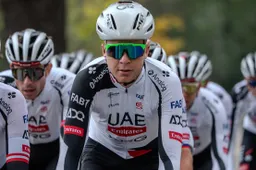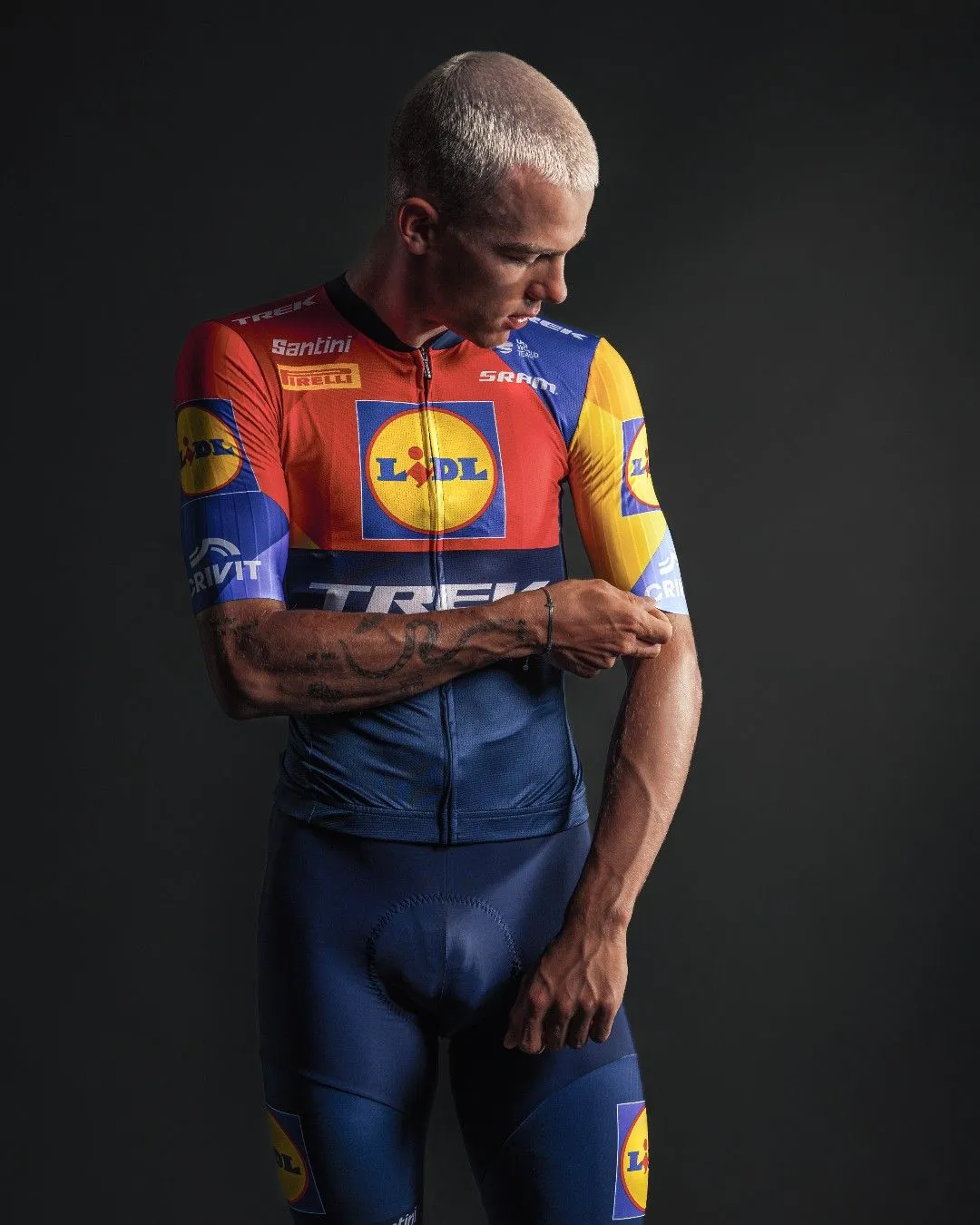World champion Brown, president of The Cyclists' Alliance talks about new structure for women: "They must not be left behind"
CyclingFriday, 06 December 2024 at 08:12

Grace Brown may be retired from cycling, but the 32-year-old Australian is far from exhausted. This year, she became the World, Olympic, and Australian time trial champions. As if that wasn't enough, she triumphed in Liège-Bastogne-Liège after a dazzling solo of almost seventy kilometers. Retiring at the very top takes courage and ability, but Brown doesn't just disappear. She takes on the role of president at The Cyclists' Alliance (TCA).
ADVERTISEMENT
"The role of president was the perfect opportunity to continue to have a positive impact on women's cycling," Brown says in a recent Q&A on the Instagram account of TCA, a cyclists' union that supports athletes with contract and training advice, career guidance, legal help, and retirement advice. Moreover, they strive to level the playing field.
Text continues below photo
ADVERTISEMENT

Brown wins the Olympic time trial
Brown has seen the sport develop rapidly
"TCA's mission aligns with my vision and passion for cycling, women's sports, and gender equity. The role of president was the perfect opportunity for me to continue having a positive impact on women's professional cycling despite stepping away from racing," Brown says.
ADVERTISEMENT
Women's cycling has rapidly developed since Brown signed her first pro contract with Wiggle High5 in 2018. A good example is when UCI announced in 2020 that Women's World Teams would be required to provide a minimum salary, a maternity leave clause, and other guarantees, such as insurance, in their riders' contracts.
"I had a relatively short career in professional cycling, but at that time, I witnessed huge changes in the sport. The most tangible change has been rider salaries, which have quadrupled for high-value riders in the past 5 years. We are also seeing teams with greater resources across the board. One of the best changes has been the increase in broadcast of women's races, which in turn has brought more fans to our sport."
Text continues below photo

Brown world time trial champion
New structure in women's cycling also brings dangers
ADVERTISEMENT
The UCI confirmed at a recent WorldTour seminar in Nice that Women's ProTeams will be introduced in 2025. This will make the women's structure the same as the men's. Seven women's teams have since applied for the new ProTeam status.
It is, in theory, a good development, but it may cause difficulties for the continental teams. "Despite the positive growth of the sport, there are still some areas that are lagging. We are particularly aware that growth at the top doesn't always trickle down. For example, the conditions on Continental level UCI teams still leave much to be desired, with many riders without a salary. We want to ensure this cohort of women are not left behind, especially because they are in an important and vulnerable development phase of their careers," Brown told us.
Rider safety also remains a key focus of the TCA's strategy. "With the level of the women's peloton increasing each year, the sport's dangers are becoming more prevalent. This is something that all stakeholders in cycling, including riders, need to work together on improving," Brown concluded.
Read also
IDL-productions

Vacancy: Growth Editor IDL Procycling - (native) English

Gravel world champion Florian Vermeersch wants to take next step in the Classics — with and without Tadej Pogacar

Tour of Valencia 2026 | Remco Evenepoel continues the hunt, but that is certainly not the only exciting thing

Roodhooft on the Van der Poel formula that helps Mathieu — and anyone who wants to follow — win at Alpecin-Premier Tech

Thibau Nys: “I don’t think World Championship was among Mathieu van der Poel’s best 10 days this winter”
Latest Cycling News

Vacancy: Growth Editor IDL Procycling - (native) English

Former rider (41) attacked on the streets of Barcelona: “The biggest fright of my life”

Gravel world champion Florian Vermeersch wants to take next step in the Classics — with and without Tadej Pogacar

Thomas and Rowe question Visma and Vingegaard decision: “What’s Jonas thinking?”

After flying start with Red Bull, Evenepoel looks ahead to Pogacar clash: “That’s exactly where he makes the difference”
Popular Cycling News

Norwegian triathlete stirs things up again as UAE Emirates-XRG Head of Performance responds: “Bizarre”

Thomas and Rowe question Visma and Vingegaard decision: “What’s Jonas thinking?”

Unibet Rose Rockets coach follows brother and joins INEOS Grenadiers

With support from Pieterse, Casasola and more, Cameron Mason explains why he 'froze' again at World Championship

Former rider (41) attacked on the streets of Barcelona: “The biggest fright of my life”
Latest Comments
- Nice!Bea22-01-2026
- Those events are mental rest for him. Fun, without expectations. *Sagan lost his abilities because he gained weight and got lazy. Pogi will likely retire before that has a chance at happening.Veganpotter14-12-2025
- Ah, the consequences of riding for Israel.Veganpotter11-12-2025
- Pidcock could follow everyone but Pogi while finishing 3rd. No second place rider this season😃Veganpotter16-11-2025
- Now the Palestinian protestors can stop their whining. Trump came to the rescue. So they can now STFU and go back to waving the rainbow flags.raufus15-10-2025
- Cracked the code lol. If it was that easy to 'crack the code' jonny Vegas would be charging up the Kwaremont giving Pog a dose of his medicine. Evenepoel can't match pog on a climb and neither can mvdp. Anything with a half difficult climb and Pog smashes the field. Even on flat(ish)parcours like Roubaix it came down to a mistake and crash by pog to definitively crown mvdp. MSR is the only one that Pog probably won't win.kevpt10-10-2025
- We've seen this movie before. I think Pogacar is doping.DeadBlow10-10-2025
- 👍Bea08-10-2025
- 👌🏻Bea08-10-2025
- What the data doesn't show is how much of an effect drafting had for evenepoel. Pogacar went with del toro at 100km whilst Evenepoel was still in the bunch. Despite the bike changes he still had a lot of assistance getting back to the bunch. Pogacar then rode 60km solo whilst evenepoel rode with Healy/Skjelmose until going solo in thd last 10-15km. Thats ~20% less power / energy requirements for 45-50km. Apples and oranges...kevpt30-09-2025
Loading


